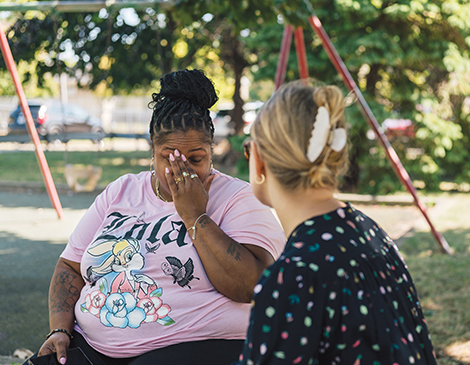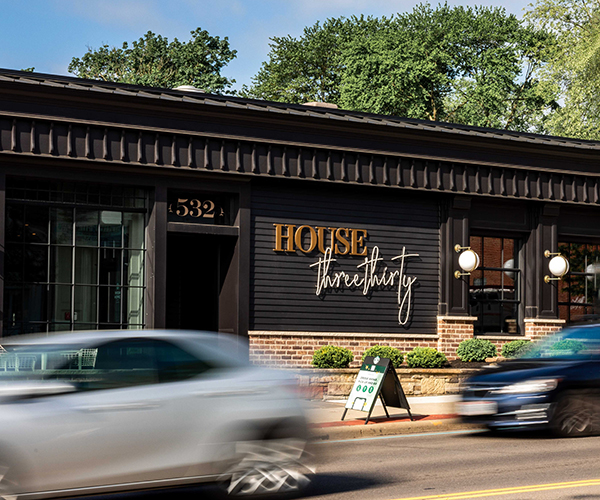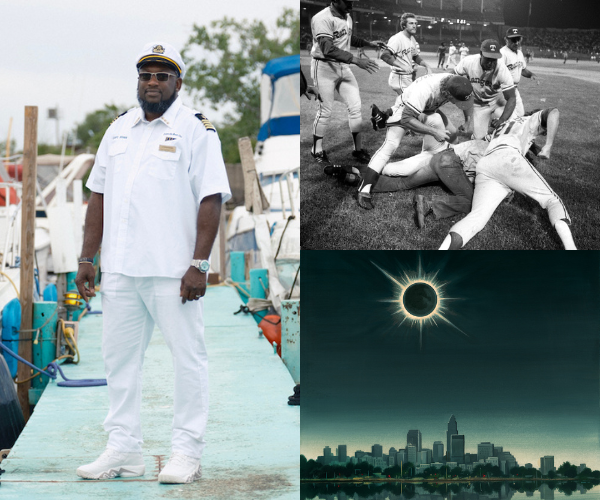On Nov. 22, 2014, Samaria Rice went to the CVS across the street from her home to pick up medicine for her older son. On the way home, she froze, suddenly and inexplicably unable to move.
“Something stopped me on the corner and numbed my body from the top of my head to the bottom of my feet,” says the mother of four. “After it went away, I walked across the street to my house. I started trying to give him the medicine, and we got a knock at the door. It was two children that said the police just shot your son.”
They were talking about her younger son, 12-year-old Tamir.
Tamir’s shooting by Cleveland police became a pivotal national moment and a keystone of the Black Lives Matter movement. His name was invoked at protests nationwide. His boyish face was all over the news.
For his mother, it was a nightmare that she could never wake up from.
She created a memorial for him at the Cudell Recreation Center where he was shot. There’s a butterfly garden, some benches and a large stone plaque commemorating him.
“It’s a sacred place for me. It’s a
memory for me, and I want it to be protected,” she says, gazing at his face etched in stone. “My son was murdered here, so this is the only piece that I have of him left.”
By the time Rice made it to the scene, Tamir was lying on the ground. Her daughter, Tajai, who was inside the recreation center at the time of the shooting, was handcuffed in the back of a police cruiser, and her older son was surrounded by police.
Tamir would be pronounced dead at the hospital early the next morning, but Samaria Rice says she knew that day he was already gone.
She remembers every detail of the case. How someone called 911 on her son, and told the operator it was “probably a juvenile” and the gun he’d been playing with was “probably fake.” How the police drove right up to the gazebo he’d been sitting in because their tires slid on the snow. How the brake lights were still on when an officer fired two shots at her child.
“It changed my DNA, it changed my kids’ DNA,” she says. “We all suffer from PTSD, anxiety and depression, but I’m able to channel it in positive ways. They’re starting to channel theirs in positive ways.”
Over the past 10 years, Rice has thrown herself into the work of remembering her son and ensuring the world doesn’t forget him either.
RELATED: Samaria Rice speaks out about justice, protesting and the search for peace
She has been outspoken about police shootings nationwide, and has given many interviews and speeches on the subject. She often holds events in Tamir’s honor, such as a 22nd birthday party in Cudell last June.
She used part of her $6 million settlement with the City of Cleveland to buy a building on the East side for the Tamir Rice Afro-Centric Cultural Center. Samaria Rice had some run-ins with what she calls bad contractors in the process of renovating the space, but she hopes that a fundraiser gala on Nov. 3 in Tamir’s honor allows her to complete the project by year’s end.
She’s hoping to get the Marion C. Seltzer Elementary School in Cudell, where Tamir went and which is being rebuilt, renamed in her son’s honor. She wanted the gazebo that he was shot under moved out of the park; it’s now in Chicago under the care of artist Theaster Gates.
Rice also lobbied for the passage of Issue 24, which gave residents the final say on police discipline and policies by shifting power to the Cleveland Community Police Commission and Civilian Police Review Board. The Cleveland Community Police Commission was established in 2015. She’s kept a close eye on the city’s Consent Decree, which went into effect in 2015 after a report from the U.S. Department of Justice found Cleveland Police engaged “in a pattern or practice of the use of excessive force.” In his latest report, published in September, Consent Decree monitor Karl Racine commended the city for “beginning to move away from unnecessary legal squabbling,” improving their rating in certain areas, and not getting worse in others.
Racine did not respond to a request for comment, and staff in Judge Solomon Oliver’s courtroom, who oversees the implementation of the Consent Decree, said he would not be able to comment. The Cleveland Police Department consigned an interview request to Mayor Justin Bibb’s office. The mayor did not respond to specific questions, but spokeswoman Marie Zickefoose said via email that the city is making “positive progress regarding the Consent Decree.” She also shared a news conference in which Leigh Anderson, the executive director of the Police Accountability Team in the Mayor’s office, said “our collective efforts are yielding positive outcomes that align with the court’s objectives and are contributing to a safer, more responsive policing environment.”
RELATED: The Cleveland 50: Tamir Rice is shot and killed
Rice is unimpressed with any improvements police have made.
“Nine years later, they should be in compliance, don’t you think?” Rice says. “It just amazes me how they don’t want accountability for their actions.”
She says she hasn’t seen much of a change in the local police, and puts her personal estimate of their compliance at around 50%.
“The people are scared of the police, and the police should be blaming themselves because y’all the one that made them scared,” she says. “You can’t call them for help! You have to be very strategic about calling them and say,
Do you really wanna call? Which police are you going to get today, are you gonna get a good cop or a bad cop? It’s a roll of the dice.”
She meets occasionally with Mayor Bibb, whose administration she refers to as “a bunch of kids running the city.”
By now, Rice has even run out of kind words for the national Black Lives Matter movement, the leaders of which she sees as “getting paid off the pain and the blood and sweat of other peoples’ death.”
She has a more favorable view of Cleveland’s BLM chapter, which she says does a better job of supporting victim’s families.
Cleveland BLM President LaTonya Goldsby is Rice’s cousin. Goldsby remembers Tamir as a “good kid” who was “always smiling and laughing.” She became an activist following Tamir’s shooting, and credits the movement with waking people up to the realities of police violence. Both women lament what they see as a lack of repercussions for police.
“We need to have some legislation in place that’ll begin to hold these officers accountable for their actions,” Goldsby says. “All too often we’ve seen officers just get away with murder, there’s no consequences to hold them accountable.”
A grand jury declined to indict the officers involved in Tamir’s death in 2015. Five years later, federal prosecutors also decided not to press charges, much to the family’s chagrin.
“It has been rough, the last 10 years,” Rice says. “A lot of sleepless nights, still having crying spells to this day. It’s not fair.”

Rice finds strength in God and hope in her grandchildren and the children of the community.
She remembers Tamir as a “gentle giant” who could throw a football like an adult and shoot 3-pointers, who loved playing the drums and creating art.
“He was exceptional,” she says, wiping a tear from her eye. “I don’t know what he could have been.”
For more updates about Cleveland, sign up for our Cleveland Magazine Daily newsletter, delivered to your inbox six times a week.
Cleveland Magazine is also available in print, publishing 12 times a year with immersive features, helpful guides and beautiful photography and design.




